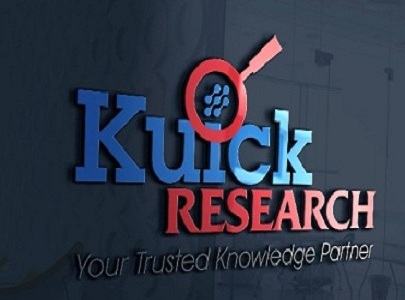
Global Bcr Abl Tyrosine Kinase Inhibitor Drug Market, Drug Price, Sales and Clinical Trials Insight 2029 Report Highlights:
Bcr Abl inhibitors have transformed the treatment landscape for patients of chronic myeloid leukemia (CML). These inhibitors work by blocking the activity of the constitutively active Bcr Abl fusion protein, which is encoded by the unnatural BCR-ABL gene, itself a product of chromosomal translocation. By directly acting on the protein held responsible for the development of this form of leukemia, researchers and drug developers have achieved great success in the past few years and so have these patients, who were mainly treating through chemotherapy, an approach coming with several adverse effects. At present, there are seven BCR-ABL inhibitors that have been approved for commercialization across the world along with some more that have approvals in specific regions. The market for BCR-ABL inhibitors is driven by the increasing cases of myeloid leukemia, and is expected to see high growth in the coming years.
Imatinib was the first Bcr Abl inhibitor to be approved for the treatment of chronic myeloid leukemia, and as a first-generation inhibitor, its clinical and commercial success led to the development of more efficient Bcr Abl inhibitors. It was commercialized across the world by the names of Gleevec and Glivec. However, following the expiration of its patent, Gleevec and Glivec have faced severe competition from generic versions of Imatinib, which have been challenging their share in the global market and have managed to chip off its sales. However, with the presence other Bcr Abl inhibitors in the market and more in the pipelines, sales of Bcr Abl inhibitors are expected to dominate over generic drugs’ sales.
Scemblix (Asciminib) was the most recent Bcr Abl inhibitor to be approved for sale in the market for the treatment of Bcr Abl mutation positive chronic myeloid leukemia and patients having the T315I mutation. It is a third-generation Bcr Abl inhibitor, which was granted accelerated approval in the US in 2021, which successfully turned into a full approval in 2022. Scemblix and other new-generation Bcr Abl inhibitors have been designed to specifically treat patients who have developed resistance to treatment with Imatinib. Along with this, they have also been designed to counter the T315I mutation, which is notable for helping develop resistance to tyrosine kinase inhibitors.
In 2022, the market for Bcr Abl inhibitors was valued around US$ 6 Billion, with Sprycel making up 27% of this. Developed by Bristol-Myers Squibb, Sprycel has been approved for the treatment of Philadelphia chromosome-positive (Ph+) chronic myeloid leukemia in chronic phases, adults with chronic, accelerated, or myeloid or lymphoid blast phase Philadelphia chromosome-positive (Ph+) chronic myeloid leukemia (CML) who have developed resistance to or intolerance to prior therapies, such as Imatinib. In addition, Sprycel can also be used for the treatment of adults with Ph+ acute lymphoblastic leukemia (Ph+ ALL), who have developed resistance to or intolerance to prior therapy, including Imatinib. Its approval as a first-line therapy has played a crucial role in its increasing sales, which have been rising every year.
While the market is majorly dominated by certain pharmaceutical companies such as Novartis, Pfizer, Bristol-Myers Squibb and Bayer, smaller companies have been venturing into the market too with their novel Bcr Abl inhibitors, which are aimed to provide better therapeutic effects with limited adverse effects compared to these drugs having an already established market. For instance, Fusion Pharma, a Russia-based company, has been conducting clinical trials for its candidate PF-114 for the treatment of patients with resistance forms of chronic myeloid leukemia, including those having T315I mutation. While phase I/II trials for PF-114 are underway, the company has planned phase 3 trials for using the drug as a 1st, 2nd and 3rd line therapies for chronic myeloid leukemia patients bearing the T315I mutation. Often referred to as a fourth-generation inhibitors PF-114 might have the key to treating patients resistant to other Bcr Abl inhibitors.
Conclusively, the research and development activities for Bcr Abl inhibitors have been gaining speed in the recent years as more of these are getting approved in the past few years. Moreover, with the increasing focus of the pharmaceutical industry of addressing the needs of rare cancers, more companies are expected to delve in the development of novel Bcr Abl inhibitors having unique mechanisms of action. Additionally, the patent expirations of the approved drugs have allowed the entry of generic versions in the market, that have helped increase the accessibility of patients to these drugs, therefore boosting the generic drugs market as well. Several favorable parameters are currently fanning market growth as a result of which, the Bcr Abl inhibitors market is anticipated to gain more attention and investments in the coming years.